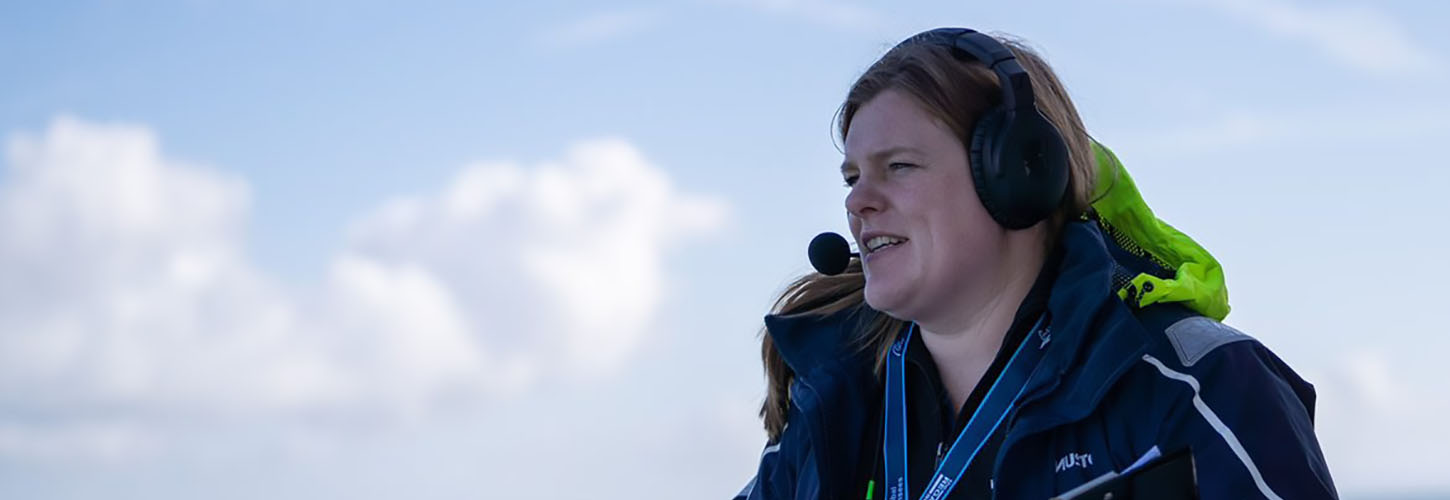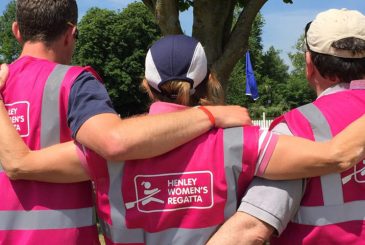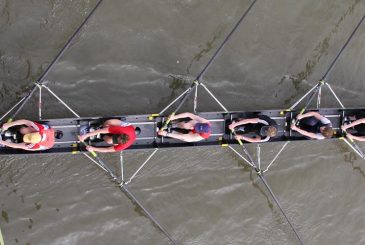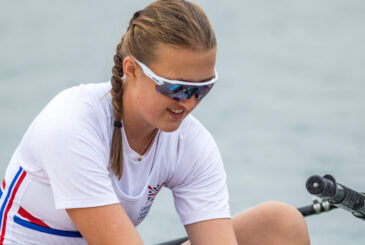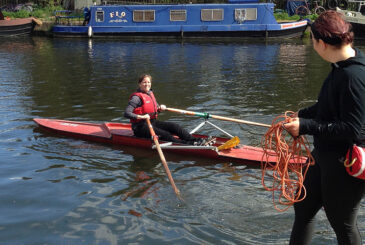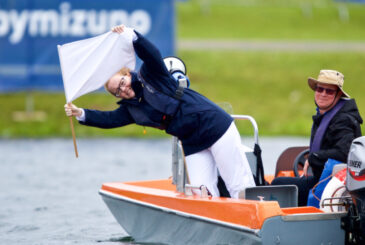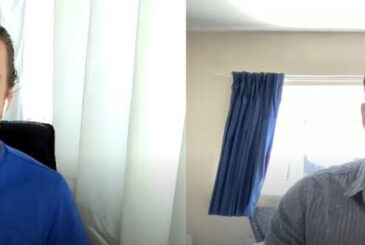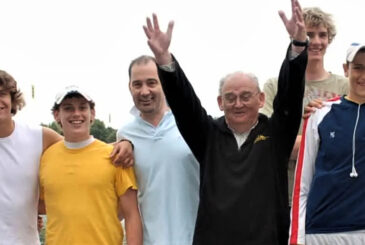Commentators of all sorts aim to explain, enhance and entertain, and that includes the volunteer commentators you’ll hear at regattas everywhere this summer. Experienced rowing commentator Camilla Hadland-Horrocks explains what’s involved in taking up the microphone
It’s a beautiful day during the regatta season, and you’re standing with friends on the riverbank at your local regatta. In the distance, you spot two crews who have just powered away from the stakeboats. You scroll through the online programme on your phone to try and work out which race is heading towards you. You try to identify the blades and the crew kit but you don’t recognise either. You’re just about to go back to your conversation when a voice comes over the Public Address system. Enter: the commentator.
Over the next few moments they tell you what the event is, who’s racing, and most importantly, the race leader. If you’re lucky, they’ll even throw in a few interesting facts and quick-witted phrases that cause a chuckle to ripple along the enclosures. Whether you’re at a small local regatta, a big multi-lane event, or even the Olympic and Paralympic Games, the commentator is ever-present, and it’s hard to imagine an event without them. But who are they, how do they know what they know, and how do you turn a love for the sport into helping bring the regatta to life?
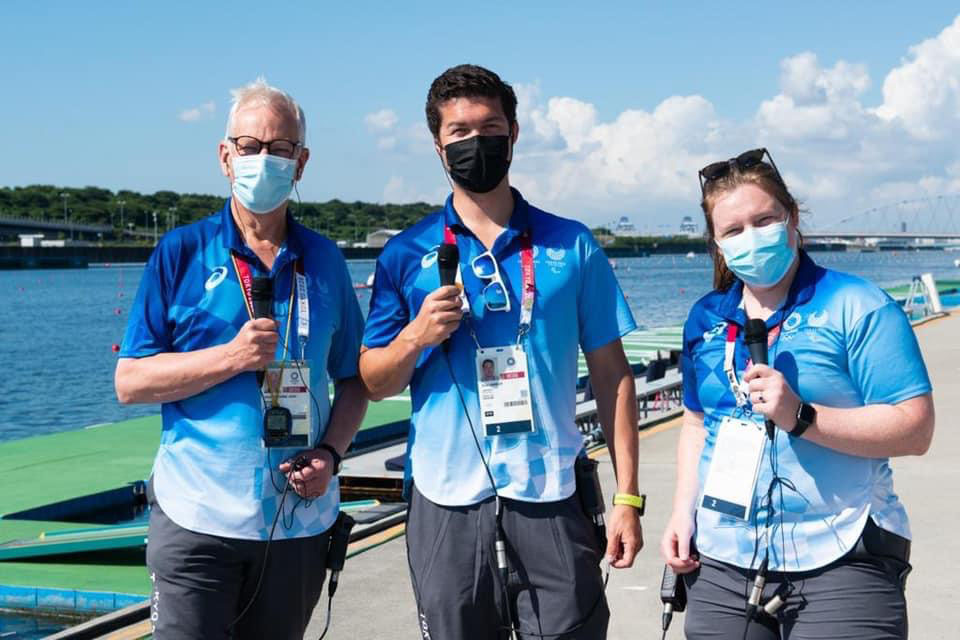
What is commentary?
At its heart, commentary is about embedding the viewer into the action, whether they’re there in person, or tuning in via a livestream. You need to bring the battles on the water to life so that the audience is invested, regardless of how strong or weak their allegiances may be to the crews or even to rowing itself.
Commentary at two different events will never be the same. At one end of the spectrum you’re in a car alongside the action, with a perfect view of the racing, a good microphone and producer in your ear, and all your notes in front of you. At the other end you’re standing at the finish line with a microphone that barely works, and you can’t see which race is coming down or who is leading because of a tree that’s sticking out from the bank. It’s at these moments that you need to get creative, and a real love for the sport shines through.
Many of the most natural commentators I have worked with are those who love talking about rowing, and want to share that with others. Even if you don’t have the best resources available, you can still bring the racing to life. If you know a little bit about a rower, crew, or even their club, and share their story with enthusiasm, it can add a huge amount to your commentary. And it all seems worth it when a supporter comes up to you after the race to say thank you for mentioning the crew they were following.
Be prepared!
Being well-prepared is of crucial importance, especially when you’re starting out as a rowing commentator. While you can’t prepare for what will happen in the race itself, having a few useful facts up your sleeve can really help to fill in gaps during the race when you’re searching for words. People have often said to me, “I just wouldn’t know what to say!” And whilst even the most experienced commentators still get tongue-tied occasionally, having the information in front of you can really kickstart your brain back into action. I often write a few snippets about each crew or descriptive verbs or adjectives in the margins of my start list, which I can draw on when I get a moment. Even if much of it goes unused, it’s reassuring to have it there.
However, despite the best intentions, you sometimes have to throw your well prepared notes out the window. At last year’s World Rowing Coastal Championships, for example, the plan had been for me to work from the nice, dry cabin of a large sight-seeing boat. But when near gale-force winds whipped the course up, my ‘office’ couldn’t get out of the harbour and I found myself hanging onto a rib in gale force winds, four kilometres out to sea. My number one priority was not being sick over the side of the boat. Sadly, all the paperwork with my carefully-crafted notes turned into papier mâché. I emerged back onto land several hours later, perhaps a little green, but was pleased to find that no one was any the wiser to my predicament.
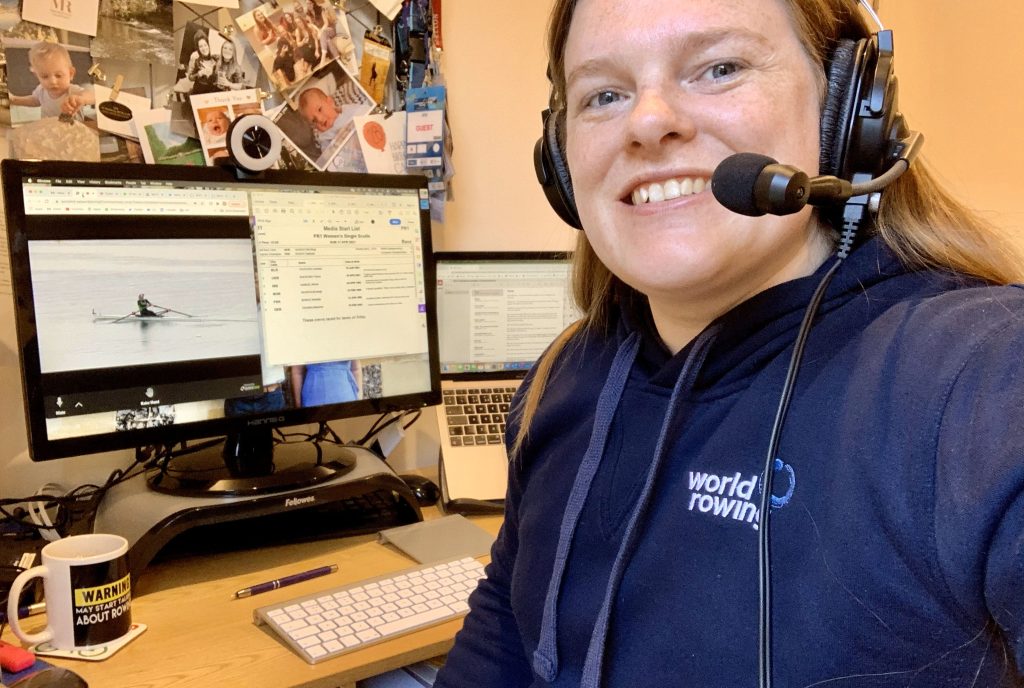
How to become a rowing commentator
Commentary is a fantastic way to get more (or stay) involved within the rowing community. There are plenty of opportunities to volunteer as a commentator at British Rowing Championships as well as at regattas around the country. Rowing needs commentators more than ever, with most large regattas now livestreaming the racing online to complement their commentary at the venue. I started by getting in touch with the organising committees of local and national events to volunteer. Give it a go – you have nothing to lose!
I’ve been commentating for over 10 years and believe it’s a great way for those who have a passion for rowing to share it with others. I want to encourage the next group of commentators to pick up the microphone, regardless of their rowing background.
Photos: Ben Chatell/World Rowing, Camilla Hadland


